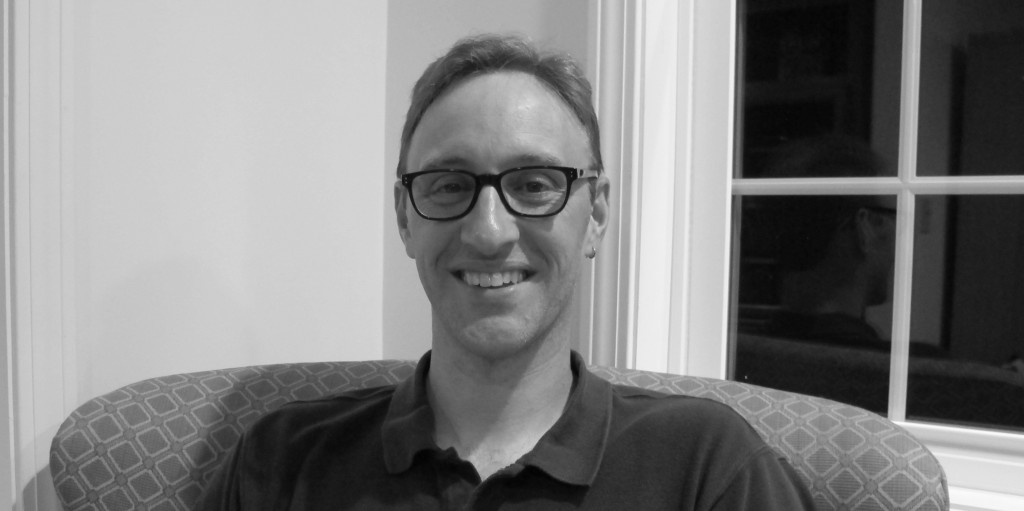Kevin M. Johnson is founder and director of The Inner Room. Formed in the summer of 2008, The Inner Room is a Roman Catholic lay association focusing on Christian contemplation and continuing theological education that result in works of compassionate service in the world. The Inner Room is recognized by the Hartford archdiocese and is also a member of Pax Romana – an international Roman Catholic lay association recognized by the Vatican’s Pontifical Council for the Laity.
Kevin received his Masters in Theology from Yale Divinity School. He currently is writing a dissertation for Boston College’s theology department in the area of Comparative Theology. He has taught as an adjunct professor at Fairfield University and routinely teaches at Sacred Heart University in Fairfield, CT. He is also a faculty member in the Bridgeport diocese permanent deaconate program. Kevin also earned a Juris Doctor from Western New England University Law School and is a licensed Connecticut attorney.
Kevin has given numerous lectures, workshops, and retreats on the contemplative theological tradition, Ignatian spiritual practices, inter-religious dialogue, and the spirituality of social justice. He writes for the blog Daily Theology and he lives on the Connecticut shoreline with his wife and three kids. You can follow The Inner Room on twitter @TheInnerRoom or like us on Facebook at www.facebook.com/THEINNERROOM.
=========================
Nota Bene: This is a five page interview. Use the “pages” menu at the bottom of each page, above the share buttons (use those too), to navigate to the next (or previous) page:
=========================
Cosmos the in Lost (Artur Rosman) Where does your fascination with the practice of Silence originate?
Kevin M. Johnson: To be honest, I am unsure how to respond. Your question is a good one and when I sat thinking about my reply I realized that this a question that has haunted me in ways my entire life but only recently have been able to begin to articulate an answer. I was raised Catholic and though I attended public schools, and my family were average Catholics, I was attracted to scripture and my religious education classes for the sacraments. At about age 12, I had a moment of intense prayer in a silent Church (not during a Mass) that caused me to question and wonder about it to this day. It wasn’t a silent prayer but the effects were powerful for me at the time. My father went on to have his own spiritual awakening and became a deacon in the church. As I got older, religion made less and less intellectual sense though I tried to hold on to it.
I attended a Jesuit undergraduate institution Fairfield University in CT and it was there that I discovered studying religion academically. I was in love immediately and took every philosophy and religion class I could. I became a religion major and considered joining the Jesuits seriously (until I met my wife at FU). After Fairfield I pursued a career in law, thinking the academic pursuit of religion was behind me. There were many periods of ups and downs in my faith but I slowly came to realize that law was not for me and I returned to the world of studying religion. While getting my Masters at Yale I also taught at Fairfield Prep, a Jesuit high school, and for the first time was forced to teach world religions and philosophy on top of theology. To teach the subjects well, I immersed myself to understand them deeply.
In confronting the different faiths deeply as well as the radical questioning of atheism, postmodern thinkers, etc — I came to notice more and more the limits of language. I was profoundly attracted to the apophatic and I re-discovered Mystical Theology and contemplation. I slowly began to notice that there was a type of Silence that was not a nihilism and not a rejection of anything but an actual way of knowing that had up to that point in my life not ever really offered to me as a way of thinking/knowing. It filled in a lot of holes for me. It is a type of Silence that is deeply Incarnational. As the acoustic ecologist Gordon Hempton says in his book One Square Inch of Silence— “Silence is not the absence of something but the presence of everything.” This type of Silence was assumed in theology up until the beginning of the modern period and it was considered foundational to Christian praxis of prayer and service. Without this type of knowing the whole Christian narrative made no sense and yet it didn’t seem to be focused on in the circles I was in, nor were many talking about it well. Academics or churches or spirituality centers seemed to talk about it, or around it, but never really engaged this Silence. I was more and more attracted to discussions and debates with Asian religious traditions of Hinduism, Buddhism and Taoism on the topics of meditation/silent prayer and the limits of language.
By the time I was in a PhD program at Boston College looking at imagination, epistemology, inter-religious dialogue and comparative theology, I was deeply conflicted. The academy didn’t seem to fully allow for the exploration of what I was truly interested in…but where else to go? Since I was invited to join the blog Daily Theology, one of my first blog postsraised this issue. Citing Jean Leclercq’s classic text The Love of Learning and the Desire for God I wondered about a space for monastic theology for non-monastics. Could there be a space for theologians that approached Silence in ways that the contemporary academy just do not do any longer? (Andrew Louth’s address on Theology, Contemplation and the University raises this issue as well).
Out of these questions, and out of a small group of friends and family members who were getting together to pray in silence and who all had interests in other religious traditions who asked these questions in ways that they weren’t asked in the churches they attended — we formed a small group called The Inner Room. Based on the phrase in Matthew 6:6, a phrase that was often referred to in early monastic meditations on prayer, The Inner Room became an unofficial space for us. Later, using my law degree, I helped to get tax exempt non-profit status for us. Then with the help and encouragement of Kevin Ahern, a good friend I met at Boston College and who is now professor at Manhattan College and a colleague at Daily Theology , The Inner Room became an official lay association with ecclesial recognition of the Hartford archdiocese of CT. With that recognition, we petitioned to become a member of Pax Romana— a network of International Catholic Professionals and Intellectuals that is recognized by the Vatican. We have held local and small events while I was involved in the PhD program at Boston College. There are plans are for us to expand programs and events this year and we hope to do more with Pax Romana.
So looking back, I notice that all the way back in that initial prayer encounter when I was 12 had an aspect of Silence to it and I have been figuring out how to articulate and situate that ever since. Currently my research and The Inner Room are the spaces I can allow Silence to speak in my life.














